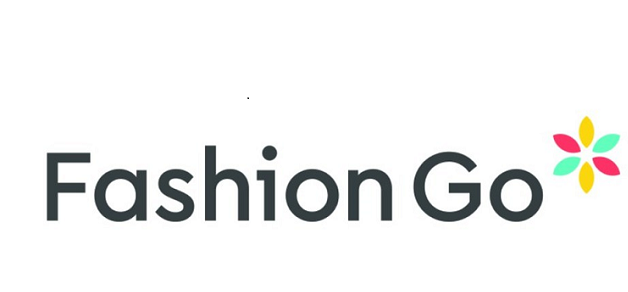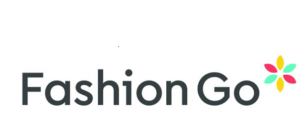How FashionGo is Bridging Retailers and Wholesalers with Smart Tools and Data

The relationship between retailers and wholesalers has shifted dramatically due to advancements in technology. Wholesale platforms now offer innovative solutions that streamline business operations, enhance product discovery, and simplify purchasing. FashionGo, a leading B2B online marketplace, is at the forefront of this change. By bridging the gap between retailers and wholesalers, FashionGo uses smart tools and data-driven analytics to provide an enhanced shopping experience that benefits both parties.
This article explores how FashionGo leverages technology to transform the traditional wholesale model into a dynamic, efficient, and data-driven marketplace.
The Traditional Challenges of Wholesale Fashion
Traditionally, retailers seeking new products would attend trade shows, connect with sales representatives, and rely on in-person meetings to source the latest styles. While these methods facilitated important relationships, they often lacked efficiency and scalability. Retailers had to navigate logistics, such as travel costs and scheduling, which added time and financial burdens to the buying process. Furthermore, without real-time data and insights into consumer preferences, retailers faced risks in selecting the wrong products or over-purchasing.
On the other hand, wholesalers struggled to reach a broader audience, often limited by geography or the size of their in-person customer base. The absence of digital solutions and advanced analytics also hindered their ability to make data-backed decisions regarding inventory management, demand forecasting, and customer preferences.
FashionGo’s Innovative Marketplace Model
Launched in 2002 in the heart of the Los Angeles Fashion District, FashionGo was designed to address these challenges. Today, it connects over 1,500 wholesalers with more than 820,000 registered buyers, enabling seamless product discovery, purchasing, and relationship-building through a single platform. The key to its success lies in its array of smart tools and data-driven features that empower both retailers and wholesalers to make informed, timely decisions.
1. Data-Driven Decision Making with FashionGo’s Insights
One of the most valuable assets for retailers on FashionGo is access to real-time, data-driven insights. Instead of relying on guesswork or historical trends, retailers can now make purchasing decisions based on actual consumer behavior, sales data, and market demand. This not only reduces the risk of overstocking or understocking certain items but also ensures that retailers are offering products their customers are actively searching for.
For example, FashionGo’s Best of Best feature provides an aggregated view of top-selling products across various categories. Retailers can filter through the best-performing products based on sales volume, helping them identify trends before they saturate the market. This level of transparency is key to ensuring that retailers remain competitive while offering products that are in demand.
Additionally, FashionGo’s platform allows retailers to track which products are generating the most engagement, such as clicks and views, offering insights into potential best-sellers before purchase decisions are finalized. This predictive approach to buying maximizes retailers’ ability to cater to evolving customer preferences without relying solely on intuition.
2. Smart Product Discovery with Style Match+
FashionGo’s Style Match+ is one of its most revolutionary tools, designed to simplify the product discovery process. This visual search engine allows retailers to upload images of products or designs they are looking for, and the system automatically matches them with similar items available on the platform. This cuts down on the time spent browsing through thousands of product listings and helps retailers quickly find exactly what they need.
For example, a boutique owner might upload a picture of a trending dress they’ve seen on social media. Using Style Match+, they can immediately find similar items available from various wholesalers on FashionGo, saving hours of manual searching. This feature also supports retailers in staying current with fashion trends and meeting customer demands with speed and efficiency.
3. FashionGo Week: A Virtual Trade Show Experience
One of FashionGo’s most popular initiatives is FashionGo Week, an online trade show that mimics the in-person trade show experience but with added convenience. During this event, retailers can browse new seasonal arrivals, take advantage of exclusive promotions, and even watch live-stream shopping experiences where vendors showcase their latest products.
For wholesalers, FashionGo Week provides an opportunity to reach a global audience, showcase their new collections, and build relationships with buyers. The event also eliminates the need for travel, making it more accessible to small businesses that may not have the resources to attend traditional trade shows.
FashionGo Week embodies the platform’s goal of merging digital innovation with the human aspects of retail relationships, making it easier for buyers and sellers to connect in meaningful ways without the geographic and logistical constraints of in-person events.
4. Automated Order and Inventory Management
Managing orders and inventory can be a time-consuming task for retailers. To address this, FashionGo offers a variety of tools designed to automate and streamline the purchasing process. Retailers can place orders with multiple wholesalers, track their shipments, and manage their inventory—all from one platform.
Additionally, FashionGo’s dynamic net terms system ensures that retailers can buy on credit, which helps them manage cash flow effectively. Retailers no longer need to worry about immediate payments, allowing them to invest in the right products at the right time without financial strain.
5. Enhancing Relationships with Real-Time Communication
Building strong relationships between retailers and wholesalers is a key component of long-term success in the fashion industry. FashionGo enhances this through its integrated communication features, allowing buyers to chat directly with vendors, ask questions, negotiate pricing, and even request customizations in real time.
This level of communication not only fosters trust but also creates a collaborative environment where both parties can work together to meet consumer needs. Moreover, it eliminates the delays associated with traditional forms of communication, such as email or phone calls, speeding up the entire procurement process.
Conclusion
FashionGo is a prime example of how technology can transform traditional business models for the better. By leveraging smart tools and data-driven insights, the platform bridges the gap between retailers and wholesalers, providing a seamless experience for product discovery, purchasing, and inventory management. FashionGo’s innovative features—such as Style Match+, Best of Best, and FashionGo Week—ensure that retailers and wholesalers alike can make informed, timely, and efficient decisions, ultimately driving the fashion industry forward in a fast-paced, digital world.
As the future of retail continues to evolve, platforms like FashionGo will play an integral role in shaping how businesses operate, paving the way for smarter, more connected, and more efficient wholesale experiences.





